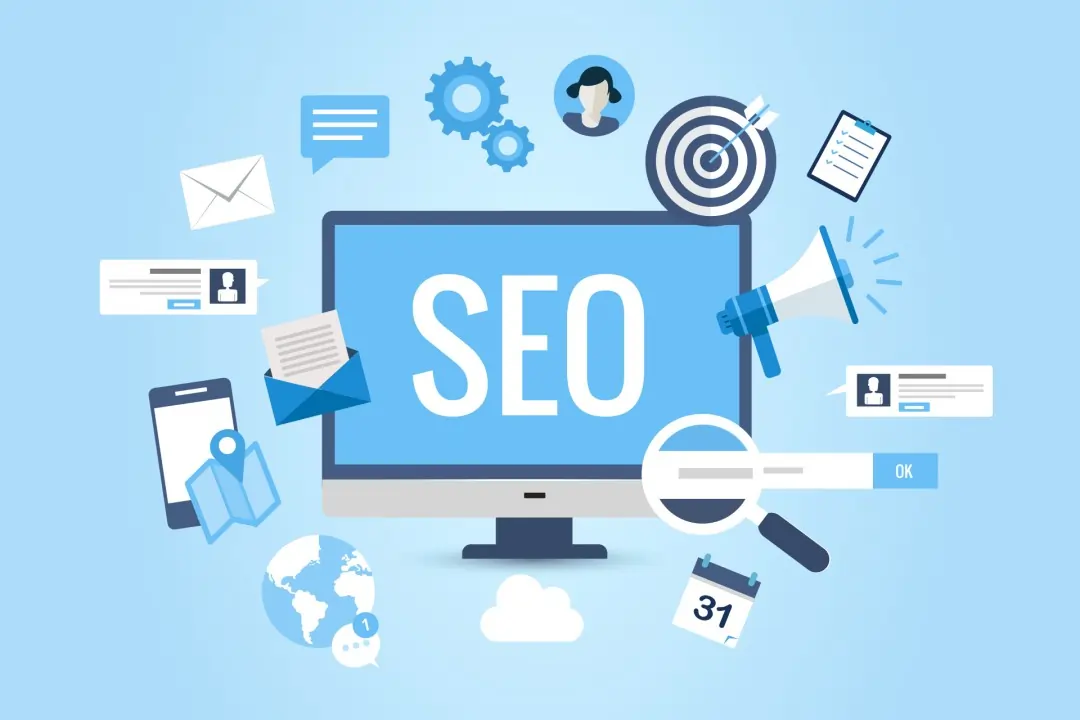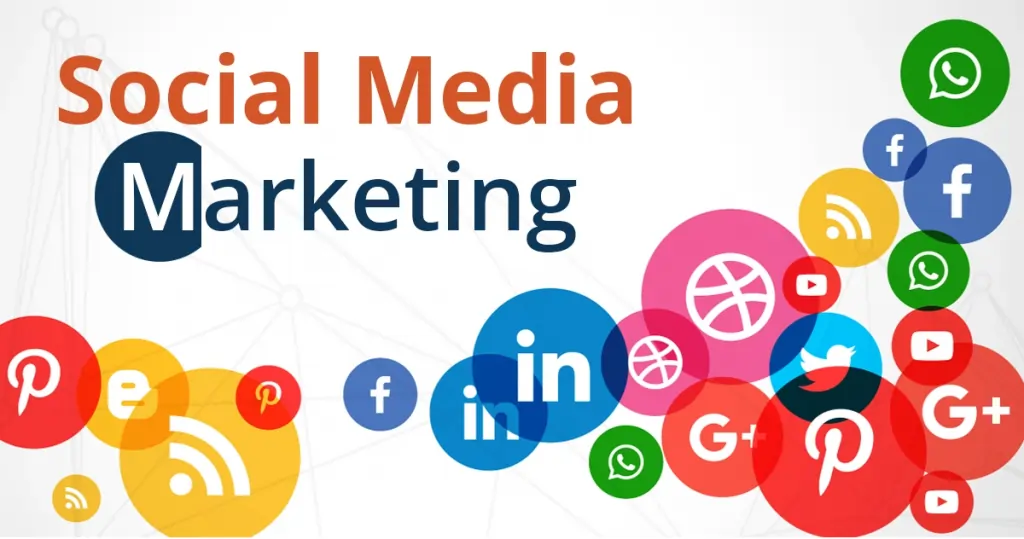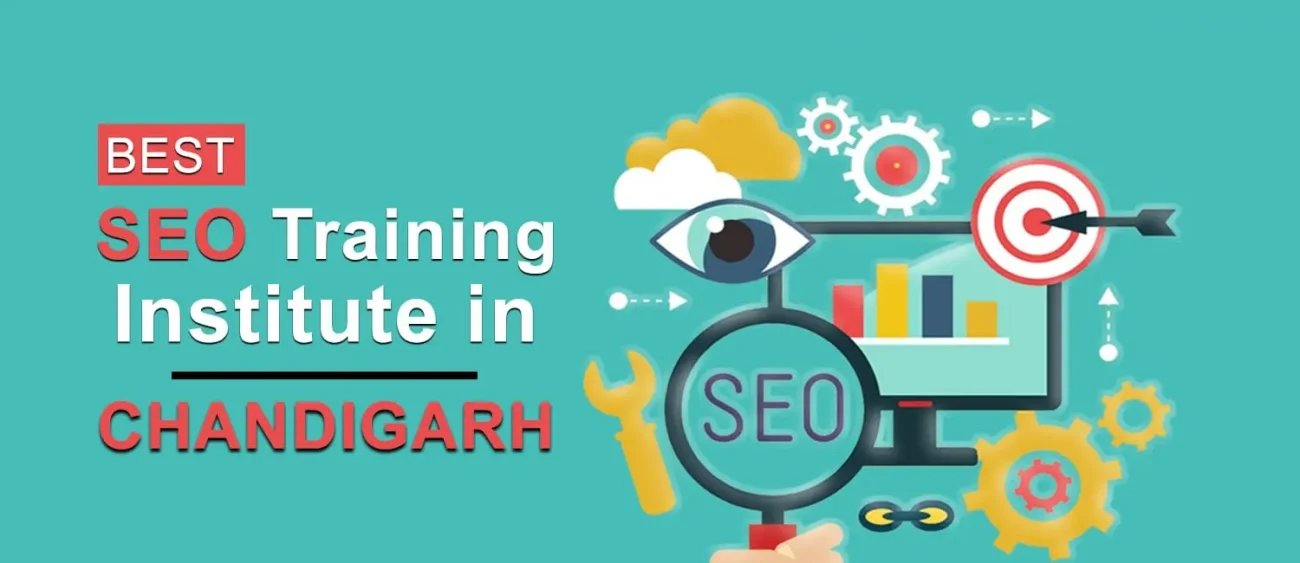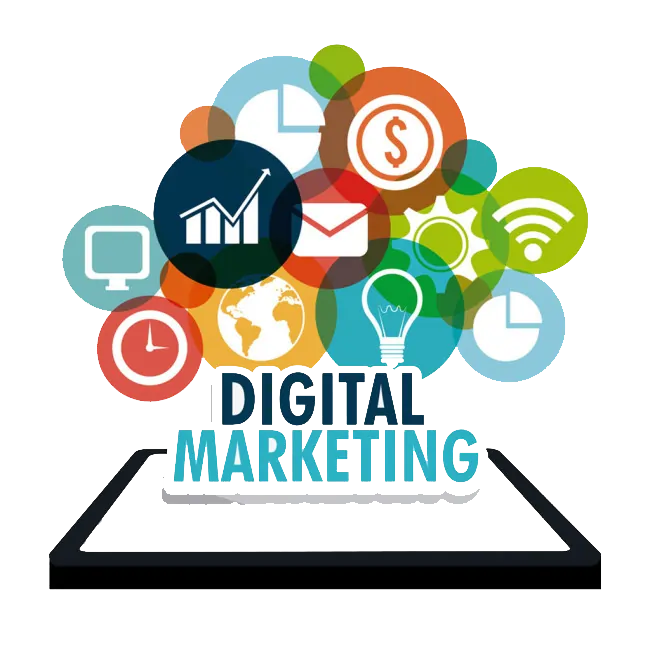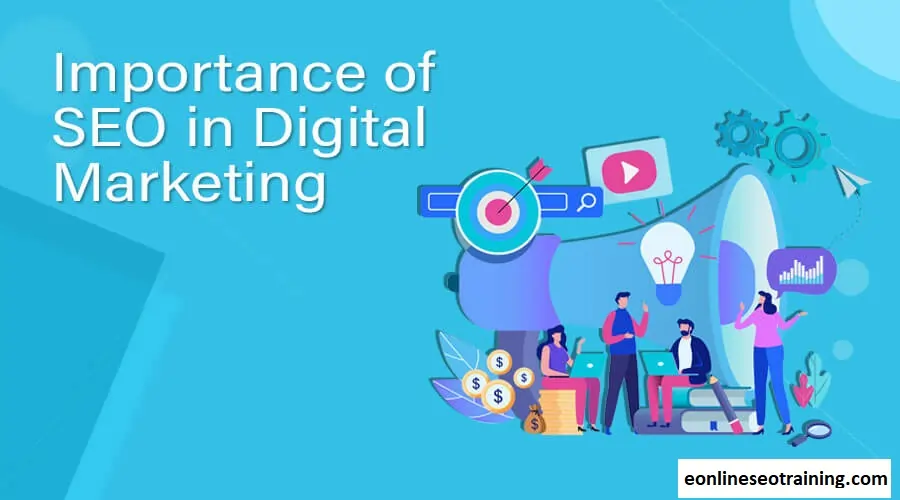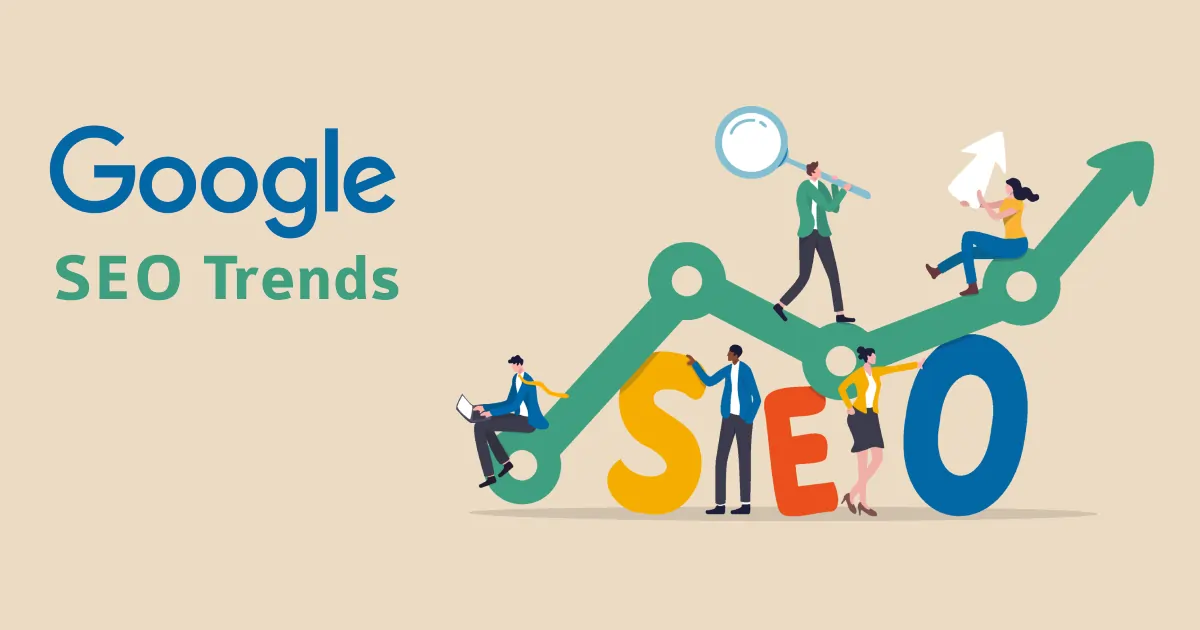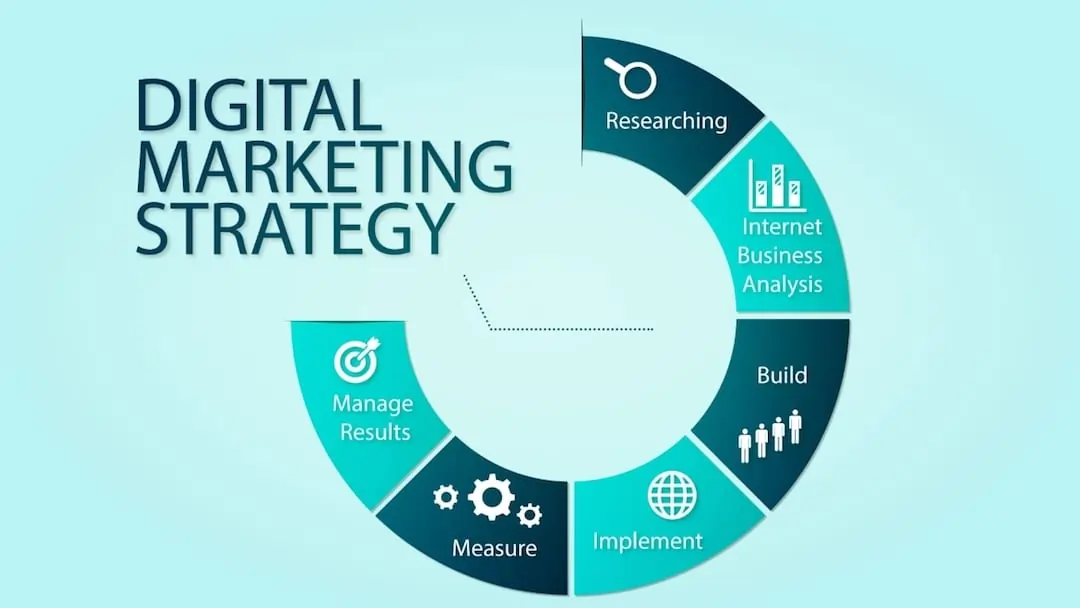Top 10 Digital Marketing Trends For 2023
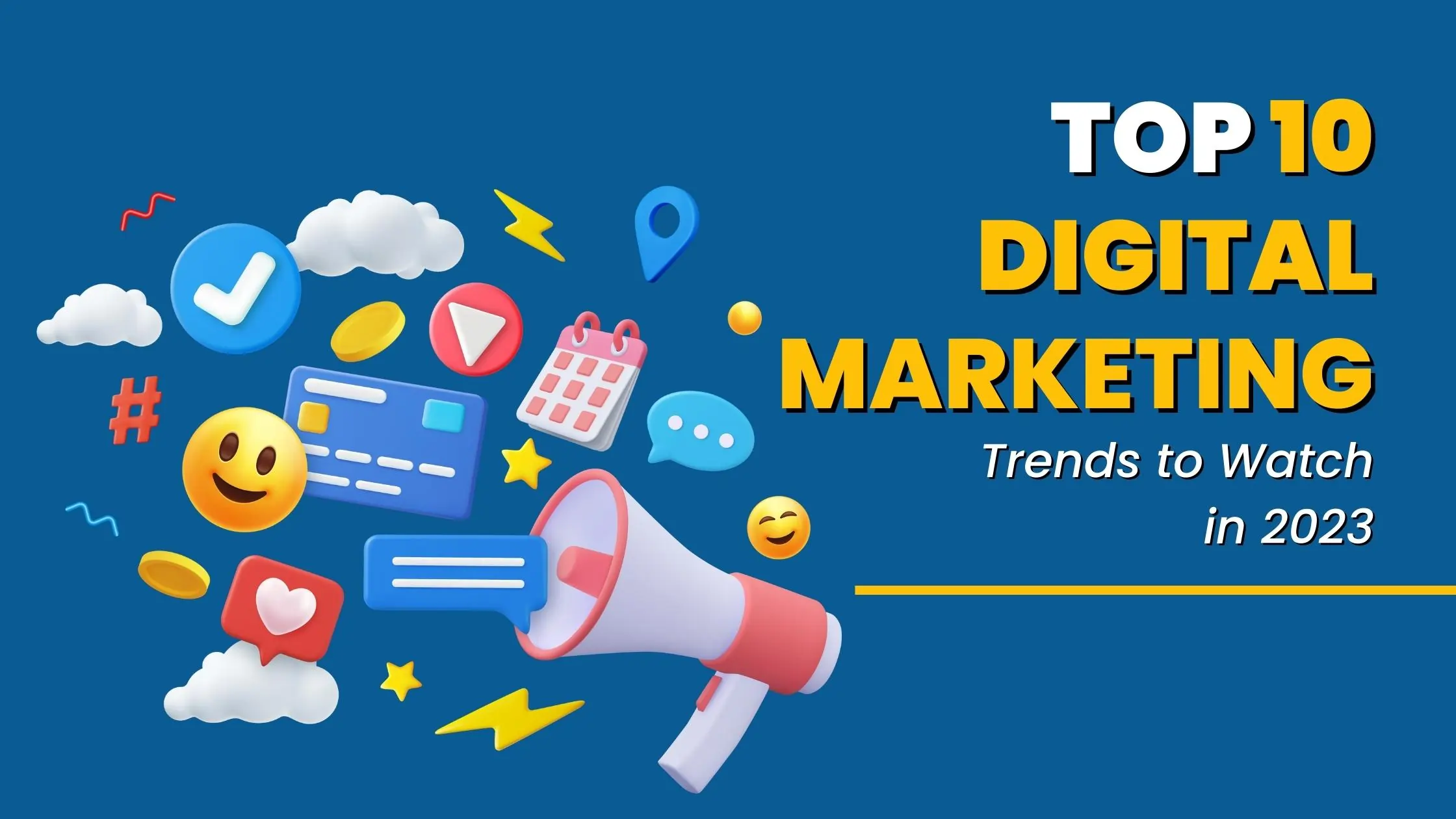
Top 10 Digital Marketing Trends For 2023
Digital marketing is an ever-evolving field, with new trends and strategies constantly emerging. As technology advances and consumer behavior evolves, it is crucial for marketers to stay up to date with the latest digital marketing trends to effectively reach their target audience and achieve their business goals. In this article, we will explore the top 10 digital marketing trends for 2023 that are expected to shape the industry. From voice search optimization to data privacy and security, let’s delve into these trends and discover how they can impact your digital marketing strategy.
Trend 1: Voice Search Optimization
Voice search has gained immense popularity in recent years, thanks to the rise of voice-enabled devices such as smart speakers and virtual assistants. With the increasing adoption of voice search technology, optimizing your website and content for voice queries is crucial. By incorporating long-tail keywords, natural language processing, and structured data markup, businesses can enhance their chances of appearing in voice search results. As more users rely on voice search for their queries, investing in voice search optimization can give you a competitive edge and improve your visibility in search engine rankings.
Trend 2: Artificial Intelligence and Machine Learning
Artificial intelligence (AI) and machine learning (ML) are revolutionizing the way digital marketers analyze data, automate tasks, and personalize user experiences. AI-powered chatbots, for example, can provide instant customer support, while ML algorithms can analyze vast amounts of data to identify patterns and make data-driven marketing decisions. By leveraging AI and ML, businesses can streamline their marketing efforts, improve targeting, and deliver personalized content at scale. Embracing these technologies can lead to increased efficiency, better customer engagement, and higher conversion rates.
Trend 3: Video Marketing
Video has become an integral part of digital marketing, and its popularity continues to soar. As consumers increasingly prefer video content over traditional text-based formats, businesses need to incorporate video marketing into their strategies. Whether it’s product demos, brand storytelling, or educational content, videos can capture the attention of your target audience and convey your message effectively. With the rise of short-form videos on platforms like Instagram Reels, marketers can leverage these formats to engage with their audience and drive brand awareness.
Trend 4: Influencer Marketing
Influencer marketing has emerged as a powerful strategy for brands to reach and engage with their target audience. Collaborating with influencers who have a dedicated following can help businesses increase brand awareness, credibility, and conversions. Influencers can create authentic and relatable content that resonates with their audience, leading to higher engagement and trust in your brand. With the growing influence of social media,
influencer marketing is expected to continue its upward trajectory in 2023, presenting businesses with new opportunities to connect with their customers.
Trend 5: Personalization and Hyper-Targeting
Personalization has become a key driver of success in digital marketing. Consumers expect tailored experiences that cater to their specific needs and preferences. By leveraging data and automation, marketers can deliver personalized content, product recommendations, and targeted advertisements. Hyper-targeting takes personalization to the next level by segmenting the audience based on granular data points and delivering highly relevant messages. By personalizing your marketing efforts, you can enhance customer satisfaction, increase engagement, and drive conversions.
Trend 6: Augmented Reality and Virtual Reality
Augmented reality (AR) and virtual reality (VR) technologies are reshaping the way consumers interact with brands and products. AR allows users to overlay digital elements onto the real world, while VR creates immersive virtual environments. These technologies offer unique and engaging experiences that can capture the attention of consumers. Businesses can leverage AR and VR for product demonstrations, virtual showrooms, and interactive experiences. By incorporating these technologies into their marketing strategies, brands can differentiate themselves and create memorable experiences for their customers.
Trend 7: Chatbots and Conversational Marketing
Chatbots have become increasingly popular as a means of providing instant customer support and improving user experiences. Chatbots can engage with users in real-time, answer frequently asked questions, and guide them through the customer journey. With advancements in natural language processing, chatbots are becoming more sophisticated and capable of understanding complex queries. By integrating chatbots into your website or messaging apps, you can enhance customer satisfaction, increase efficiency, and free up resources for more strategic tasks.
Trend 8: Social Media Stories
Social media stories, such as those on Instagram, Facebook, and Snapchat, have gained immense popularity and have become a valuable marketing tool. Stories provide a more casual and authentic way for brands to connect with their audience. With features like interactive stickers, polls, and swipe-up links, businesses can engage with their followers and drive traffic to their websites or landing pages. The ephemeral nature of stories creates a sense of urgency and exclusivity, encouraging users to take immediate action.
Trend 9: User-Generated Content
User-generated content (UGC) has a powerful impact on brand perception and customer engagement. UGC includes reviews, testimonials, social media posts, and other content created by consumers. Incorporating UGC into your digital marketing strategy can help build trust, social proof, and authenticity. Encouraging customers to share their experiences and stories related to your brand can generate a sense of community and foster a deeper connection with your audience.
Trend 10: Data Privacy and Security
Data privacy and security have become major concerns for consumers in the digital age. With data breaches and privacy scandals making headlines, businesses need to prioritize data protection and transparency. Implementing robust security measures, obtaining proper consent for data collection, and being transparent about data usage can build trust with your customers. Additionally, complying with data privacy regulations such as the General Data Protection Regulation (GDPR) and the California Consumer Privacy Act (CCPA) is essential to avoid legal repercussions and maintain a positive brand image.
Conclusion
As we look ahead to 2023, it’s clear that digital marketing will continue to evolve and present new opportunities and challenges. From voice search optimization to personalized experiences, embracing these top 10 trends can help businesses stay ahead of the competition and effectively connect with their target audience. By leveraging the power of emerging technologies, data-driven insights, and customer-centric strategies, marketers can achieve their goals and drive sustainable growth in the digital landscape.
FAQs
1.What is the importance of voice
Voice search optimization is crucial in digital marketing as more users rely on voice-enabled devices for their queries. Optimizing your website and content for voice search can improve your visibility and attract organic traffic.
2.How can businesses leverage artificial intelligence and machine learning in their marketing strategies?
Businesses can leverage AI and ML to automate tasks, analyze data, and deliver personalized experiences. AI-powered chatbots and ML algorithms can enhance customer engagement and optimize marketing campaigns.
3.What are the benefits of video marketing?
Video marketing can capture attention, convey messages effectively, and increase engagement. It allows businesses to showcase their products, tell compelling stories, and connect with their audience on a deeper level.
4. How can influencer marketing be effective for brand promotion?
Influencer marketing enables businesses to tap into the influence and reach of popular social media personalities. Collaborating with influencers can increase brand awareness, credibility, and conversions.
5. What role does personalization play in digital marketing?
Personalization enhances customer experiences by delivering tailored content and recommendations. It helps businesses build stronger connections with their audience, drive engagement, and foster brand loyalty.

